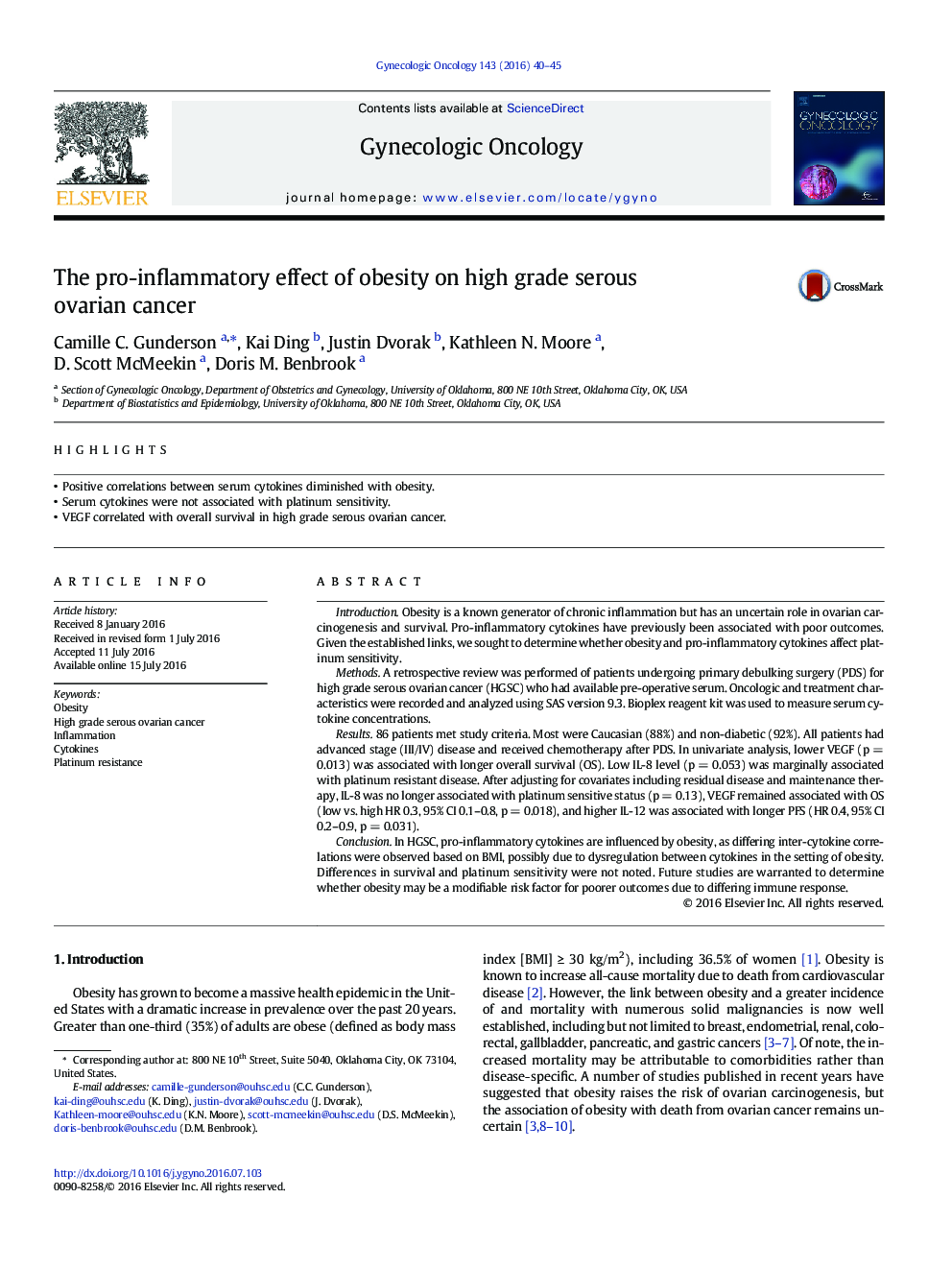| Article ID | Journal | Published Year | Pages | File Type |
|---|---|---|---|---|
| 3942405 | Gynecologic Oncology | 2016 | 6 Pages |
•Positive correlations between serum cytokines diminished with obesity.•Serum cytokines were not associated with platinum sensitivity.•VEGF correlated with overall survival in high grade serous ovarian cancer.
IntroductionObesity is a known generator of chronic inflammation but has an uncertain role in ovarian carcinogenesis and survival. Pro-inflammatory cytokines have previously been associated with poor outcomes. Given the established links, we sought to determine whether obesity and pro-inflammatory cytokines affect platinum sensitivity.MethodsA retrospective review was performed of patients undergoing primary debulking surgery (PDS) for high grade serous ovarian cancer (HGSC) who had available pre-operative serum. Oncologic and treatment characteristics were recorded and analyzed using SAS version 9.3. Bioplex reagent kit was used to measure serum cytokine concentrations.Results86 patients met study criteria. Most were Caucasian (88%) and non-diabetic (92%). All patients had advanced stage (III/IV) disease and received chemotherapy after PDS. In univariate analysis, lower VEGF (p = 0.013) was associated with longer overall survival (OS). Low IL-8 level (p = 0.053) was marginally associated with platinum resistant disease. After adjusting for covariates including residual disease and maintenance therapy, IL-8 was no longer associated with platinum sensitive status (p = 0.13), VEGF remained associated with OS (low vs. high HR 0.3, 95% CI 0.1–0.8, p = 0.018), and higher IL-12 was associated with longer PFS (HR 0.4, 95% CI 0.2–0.9, p = 0.031).ConclusionIn HGSC, pro-inflammatory cytokines are influenced by obesity, as differing inter-cytokine correlations were observed based on BMI, possibly due to dysregulation between cytokines in the setting of obesity. Differences in survival and platinum sensitivity were not noted. Future studies are warranted to determine whether obesity may be a modifiable risk factor for poorer outcomes due to differing immune response.
